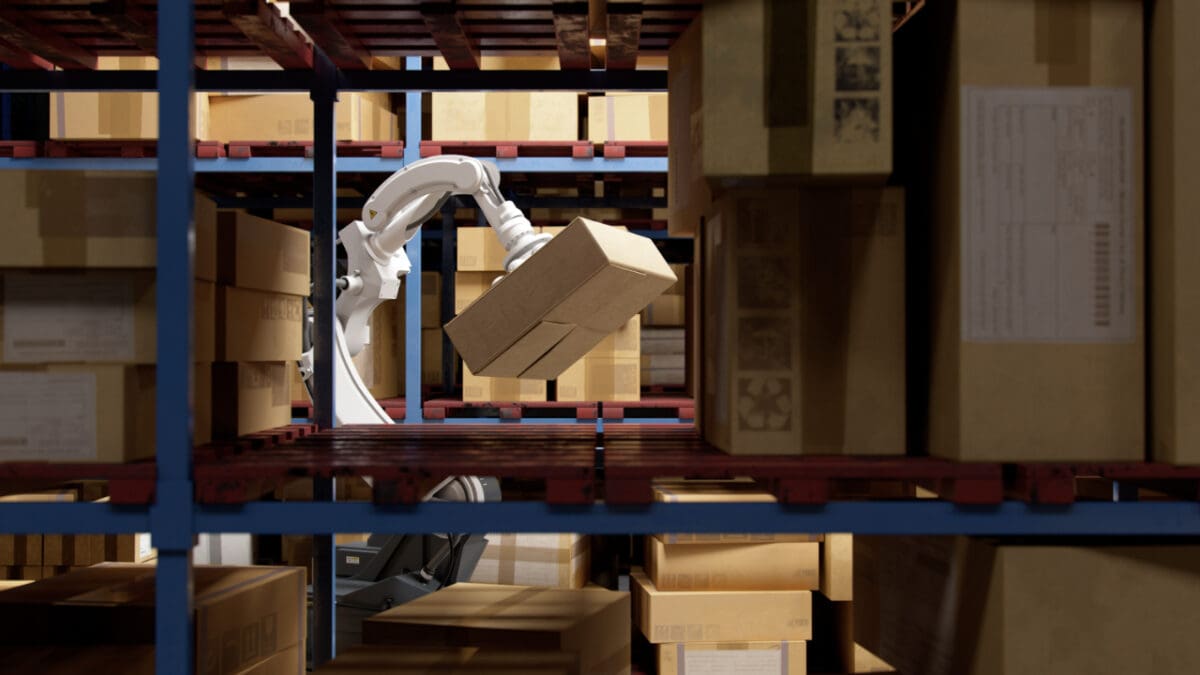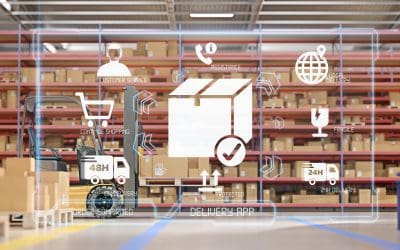
Artificial Intelligence (AI) has seen rapid adoption across numerous industries, transforming everything from healthcare to finance with its ability to streamline operations, reduce errors, and provide deeper insights. Despite these advancements, the logistics sector has been slower to implement AI-driven solutions. This hesitation is primarily due to the complexities and scale of logistics operations, making the integration of new technologies seem intimidating. Logistics involves a vast network of interconnected processes, and even minor changes can have significant ripple effects, contributing to the industry’s cautious approach.
However, the landscape is changing. Numerous logistics automations are already available and successfully utilized by forward-thinking companies. These technologies, like Warehouse Management Systems (WMS), Transportation Management Systems (TMS), and Automated Guided Vehicles (AGVs), are helping businesses enhance efficiency, accuracy, and scalability in their operations. Real-time tracking systems and predictive analytics are also being adopted to provide better visibility and decision-making capabilities. The benefits of adopting logistics automation are becoming increasingly evident, and those who lag in implementation risk falling behind their competitors. Embracing these technologies ensures competitiveness and positions businesses to adapt more swiftly to future advancements and market demands.
Why Choose Automation?

- Reduced Errors: Automation minimizes human errors in data entry, order processing, and inventory management. Automated systems guarantee accuracy and consistency, reducing costly mistakes that can disrupt operations and affect customer satisfaction. Implementing a WMS can improve inventory accuracy to nearly 100%, significantly reducing the risk of stockouts and overstocking. This guarantees that operations run smoothly and customers receive their orders correctly and on time.
- Better Insights and Visibility: Automated systems provide real-time data and analytics, giving businesses better visibility into their supply chain operations. This enhanced visibility helps make informed decisions, optimize processes, and identify improvement areas. With real-time tracking, companies can monitor their fleet and shipments, anticipate delays, and proactively mitigate issues. These insights are crucial for maintaining a responsive and agile supply chain.
- Smoother Operations: Automation streamlines processes, reducing bottlenecks and improving overall operational efficiency. Businesses can focus on more strategic activities by automating repetitive and time-consuming tasks, improving productivity and efficiency. AGVs and robotic sorting systems can handle goods movement and sorting more quickly and accurately than manual methods, freeing up employees to focus on higher-value tasks
- Cost Savings: Businesses can significantly lower operational costs by reducing manual labor and optimizing processes. Automation minimizes errors, reduces waste, and improves resource utilization, leading to substantial cost savings. Companies using TMS have reported up to an 8% reduction in freight costs. Automating dispatch and routing processes can further reduce fuel costs and improve delivery efficiency, contributing to overall cost savings.
Impacts of Adopting Logistics Automation
Several logistics automation technologies are readily available today and should be adopted sooner rather than later to stay competitive. Automated warehousing technologies such as robotic picking, packing, and sorting can drastically improve warehouse efficiency and accuracy. Real-time tracking systems using GPS and IoT-enabled devices provide comprehensive tracking and monitoring of goods, enhancing visibility and reducing delays. Automated billing and invoicing systems streamline financial processes, reducing manual paperwork and speeding up payment cycles.
By embracing logistics automation, businesses can stay competitive and enhance their operations, leading to better customer satisfaction and improved bottom lines. Integrating these automation technologies can transform logistics operations, making them more efficient, reliable, and scalable.
Benefits of Logistics Automation
Logistics automation is revolutionizing the industry by streamlining operations, reducing errors, and significantly cutting costs.
1. Increased Efficiency and Productivity
Automation in logistics leads to significant improvements in efficiency and productivity. For instance, WMS implementation automates inventory tracking, order picking, and stock replenishment. A report by DHL highlights that companies using automated inventory management systems experience inventory accuracy rates of up to 99.99%, drastically reducing the time spent on manual checks and corrections. This high accuracy minimizes disruptions and ensures smooth operations.
2. Cost Savings
One of the most compelling benefits of logistics automation is the reduction in operational costs. According to a study by MarketsandMarkets, the TMS market is expected to grow from USD 78.20 billion in 2021 to USD 150.66 billion by 2026, driven largely by cost savings from automation. Companies that implemented TMS reported up to an 8% reduction in freight costs, along with improved shipment visibility and reduced manual labor costs.
3. Enhanced Accuracy and Reduced Errors
Human errors in logistics can be costly, leading to delays, lost shipments, and unhappy customers. Automation significantly reduces these errors. AGVs eliminate manual handling errors by efficiently transporting goods within warehouses. Automation in logistics reduces the need for manual data entry, leading to fewer errors and improved data accuracy, which is crucial for maintaining operational integrity.
4. Better Insights and Visibility
Automation provides real-time data and analytics, giving businesses better insights into their operations. Making informed decisions, optimizing processes, and identifying areas for improvement are enhanced by this visibility. Real-time tracking systems using GPS and IoT devices allow companies to monitor their shipments accurately, reducing delays and improving customer satisfaction. A survey by EFT revealed that companies using automated tracking systems experienced significant improvements in shipment visibility and operational efficiency.
5. Scalability and Flexibility
Automated systems can easily scale to handle increased volumes, making them ideal for growing businesses. Automation technologies like robotic picking and sorting can adjust to varying demand levels, ensuring efficient operations during peak seasons. According to JR Automation, automation solutions enable warehouses to achieve 99.9% uptime, enhancing operational continuity and scalability.
6. Improved Safety and Ergonomics
Safety is a major concern in logistics, with warehouses often being high-risk environments. Automation reduces the need for manual labor in hazardous tasks, thereby improving workplace safety. Automated systems like robotic arms and AGVs handle dangerous materials and heavy lifting, reducing the risk of workplace injuries.
7. Enhanced Customer Satisfaction
By improving accuracy, efficiency, and speed, logistics automation directly impacts customer satisfaction. Faster order processing and delivery, with fewer errors, lead to a better customer experience. Automated systems can process invoices and delivery notes quickly and accurately, ensuring timely, accurate shipments.

How Elite EXTRA Can Help You Automate Your Logistics
Elite EXTRA offers advanced logistics automation solutions designed to streamline your operations, reduce costs, and improve efficiency. Our platform combines cutting-edge technology with industry expertise to provide comprehensive tools that address the complexities of modern logistics.
Our Successes and Features
1. Advanced Route Optimization: Elite EXTRA’s route optimization technology ensures the most efficient delivery routes, reducing fuel costs and improving delivery times. By analyzing various factors such as customer priorities, delivery windows, and vehicle capacities, our system generates optimal routes that save time and resources.
2. Real-Time Visibility: Our platform provides real-time tracking and monitoring of your fleet and shipments. This visibility allows you to monitor deliveries, anticipate delays, and communicate effectively with customers. Real-time data helps you make informed decisions, enhancing operational efficiency and customer satisfaction. With Elite EXTRA, you gain a comprehensive view of your logistics operations, enabling proactive management and timely responses to potential issues.
Elite EXTRA’s real-time tracking feature provides distributors with comprehensive visibility over their fleet. This allows them to monitor deliveries, anticipate and mitigate delays, and communicate effectively with customers regarding their order statuses.
3. Automated Dispatching: We simplify the dispatch process by automating order assignments and driver communications. This feature reduces manual intervention, speeds up operations, and ensures that deliveries are dispatched accurately and efficiently. Automated dispatching helps manage high-order volumes easily, particularly during peak seasons. This boosts productivity and guarantees your customers receive their orders on time, every time.
The automated dispatching feature streamlines the assignment of orders to drivers, reducing manual intervention and errors. During peak seasons, this automation allows distributors to handle a 30% increase in order volume without additional staff. The automated system ensures that orders are dispatched accurately and efficiently, maintaining high service levels even during busy periods.
4. Comprehensive Analytics and Reporting: Our system offers robust analytics and reporting tools that provide insights into your logistics operations. By tracking key performance indicators (KPIs) such as delivery times, route efficiency, and driver performance, you can identify areas for improvement and make data-driven decisions. This capability is crucial for continuous improvement and maintaining a competitive edge. Elite EXTRA’s analytics enable you to understand and optimize every aspect of your logistics operations, ensuring sustained growth and efficiency.
By leveraging Elite EXTRA’s analytics and reporting tools, users can track key performance indicators such as delivery times, route efficiency, and driver performance. These insights enabled them to identify bottlenecks and areas for improvement. Over time, this leads to continuous operational enhancements and sustained growth in their delivery capabilities.
5 Additional Automations Outside of Elite EXTRA’s Wheel House
1. Transportation Management Systems (TMS): TMS optimizes route planning, load consolidation, and carrier selection, reducing transportation costs and enhancing delivery performance. TMS helps manage and monitor the entire transportation process from a single platform, providing better visibility and control over logistics operations. Companies using TMS have reported up to an 8% reduction in freight costs.
2. Warehouse Management Systems (WMS): WMS are critical for automating inventory tracking, order picking, and stock replenishment. By integrating WMS, companies can significantly reduce human errors and improve efficiency in warehouse operations. WMS provides real-time data on inventory levels, improving inventory control and reducing the chances of stockouts or overstocking.
3. Automated Guided Vehicles (AGVs): AGVs are robots used for transporting goods within warehouses. AGVs reduce the need for manual labor, increasing operational efficiency and safety. These vehicles can navigate through the warehouse, transporting items from one location to another without human intervention, ensuring a smooth and continuous flow of materials.
4. Automated Sorting Systems: Automated sorting systems enhance the speed and accuracy of sorting processes, which is crucial for meeting the demands of eCommerce. These systems can quickly and accurately sort packages based on various criteria such as size, weight, and destination, reducing the time and labor required for manual sorting.
5. Predictive Analytics: Predictive analytics use data to forecast demand, optimize inventory levels, and improve decision-making processes. By analyzing historical data and identifying patterns, predictive analytics can help logistics managers anticipate demand fluctuations and adjust their operations accordingly, ensuring that the right products are available at the right time.
Embrace the Future of Logistics
Logistics automation is a necessity in today’s fast-paced and competitive market. By integrating advanced technologies, businesses can significantly enhance their operational efficiency, accuracy, and customer satisfaction.
Adopting logistics automation helps minimize errors, improve visibility, and streamline operations. Companies that embrace these innovations can enjoy substantial cost savings and scalable solutions that grow with their business needs. Elite EXTRA is committed to helping you navigate this transformation with our state-of-the-art logistics automation solutions.
If you’re ready to revolutionize your logistics operations, Elite EXTRA is here to guide you. Download our most recent white paper about delivery automation and learn how our solutions can help you stay ahead in the competitive logistics landscape.
For personalized assistance and to learn more about how Elite EXTRA can revolutionize your logistics operations, contact us today!
Sources
https://www.jrautomation.com/ industries/logistics-and-warehouse-automation
https://nanonets.com/blog/logistics-automation-systems
https://mercurygate.com/blog-posts/what-is-logistics-automation-and-why-will-automation-grow-in-value
https://www.dhl.com/content/dam/ dhl/global/dhl-supply-chain/documents/pdf/sc_tech_automated-optimized-solution-enables-semiconductor-customers_en.pdf
https://nanonets.com/blog/logistics-automation-systems
https://www.jrautomation.com/ industries/logistics-and-warehouse-automation







